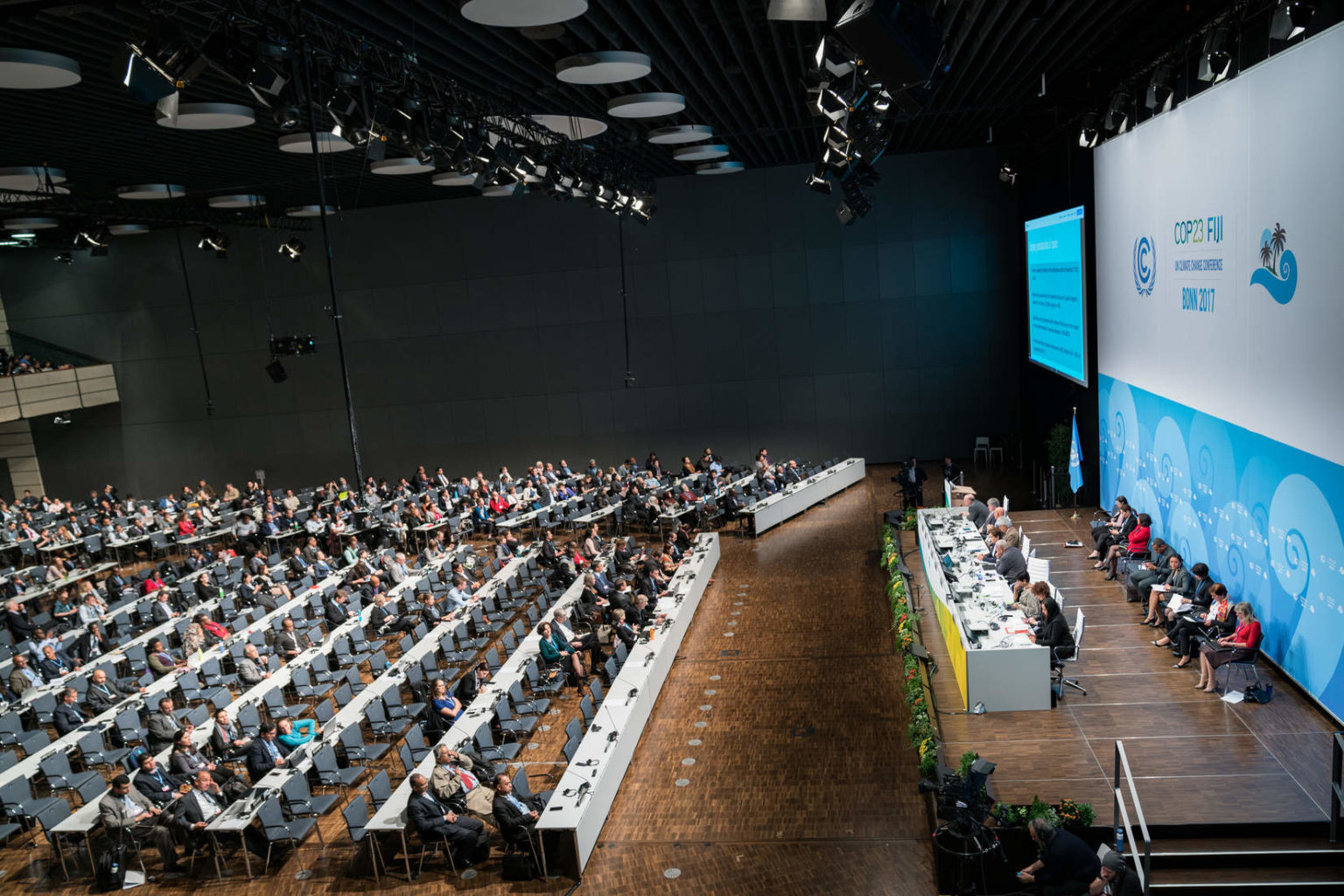BONN, GERMANY – The UK should make a “sensible and pragmatic” decision to continue working with the EU on global climate policy after Brexit or risk being side-lined at the international talks, a former UK negotiator has told DeSmog UK.
At the international climate negotiations in Bonn taking place this week, the UK is coordinating with the EU’s 27 other member states to speak as one voice during the negotiation process.
But with Brexit due to come into effect in March 2019, the UK could withdraw from the EU grouping of countries – known in negotiation jargon as a bloc – in future talks.
With 11,300 participants from 196 countries taking part in this year’s climate talks, blocs and political groupings are a key part of the negotiation process and they help ensure progress can be made between countries or “parties”.
Speaking to DeSmog UK at the climate talks, Dr Stephen Cornelius, WWF’s chief adviser on climate change and a former UK negotiator, said: “In many ways it is more sensible and pragmatic to continue to align ourselves with the EU. UK negotiators have been major players in shaping the EU’s position in the talks.”
Cornelius said that “the UK would have a stronger voice if it is aligned with a bloc”, especially since the negotiation process sometimes only allows individual countries to speak as part of a group.
He added the UK could leave the EU bloc and independently support its position but that there was “a risk of being outside the bloc and not being able to shape the negotiating positions”.
His remarks come after the UK government made no mention of climate change or of the Paris Agreement in a paper outlining its proposed foreign policy relationship with the EU after Brexit. In contrast, the EU has put climate change among its foreign policies priorities.
The omission of climate change from the UK’s paper was also surprising since, historically, the UK has been seen as a progressive voice within the EU negotiating bloc pushing for higher ambitions.
Cornelius told DeSmog UK that the UK’s possible withdrawal from the EU bloc in the climate negotiations will be a political decision made as part of ongoing Brexit negotiations.
If the UK was to leave the EU bloc after Brexit, it could become a part of the Umbrella Group, a loose coalition of non-EU developed countries which usually includes Australia, Canada, Japan, New Zealand, Kazakhstan, Norway, Russia, Ukraine and the US.
Alternatively, it could look to join the Environmental Integrity Group, which is made of Mexico, Liechtenstein, Monaco, South Korea and Switzerland.
Cornelius added that whichever grouping the UK decided to join, it would be judged first on its domestic policies to tackle climate change. For instance, the UK could have to submit its own targets to reduce emissions under the Paris Agreement to the UN – officially known as National Determined Contributions (NDCs) – which are currently part of the EU’s overall effort.
The UK government did not respond to a request for comment.
Photo: UN Climate Change via Flickr | CC2.0
Subscribe to our newsletter
Stay up to date with DeSmog news and alerts






